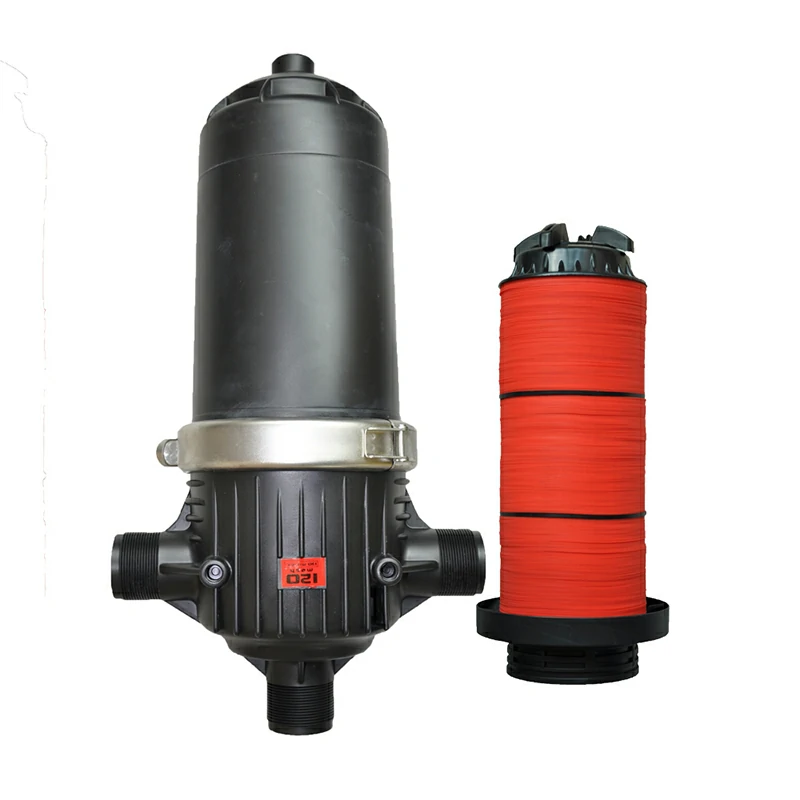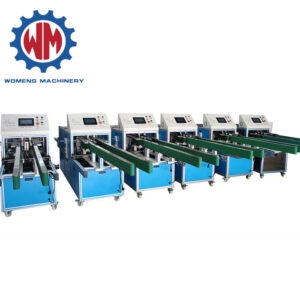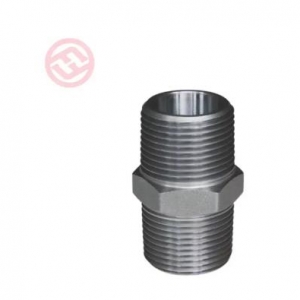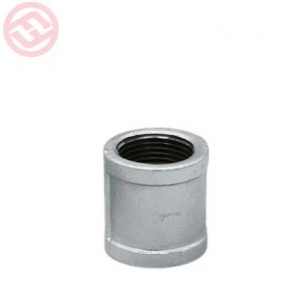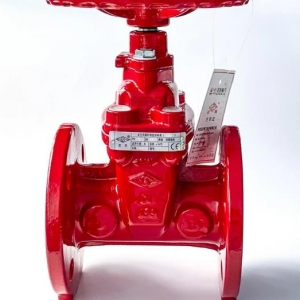The use of plastic material in a Disc Filter offers several advantages, particularly in terms of durability and corrosion resistance. Here are the key benefits:
-
Corrosion Resistance:
- Plastic Disc Filters are highly resistant to corrosion, which is a common concern with metal filters. This resistance makes plastic filters particularly suitable for applications where exposure to corrosive substances or environments is likely.
-
Chemical Resistance:
- Plastics, depending on the specific material used (such as polypropylene or PVC), exhibit excellent chemical resistance. This makes Plastic Disc Filters suitable for filtering a wide range of fluids, including those with varying chemical compositions.
-
Durability in Aggressive Environments:
- Plastic Disc Filters are well-suited for use in aggressive environments where exposure to chemicals, salts, or abrasive materials is common. The durability of plastic materials ensures a longer lifespan in such challenging conditions.
-
Lightweight Construction:
- Plastic materials are generally lightweight compared to metals. This lightweight construction makes Plastic Disc Filters easy to handle during installation, maintenance, and cleaning operations.
-
Reduced Risk of Galvanic Corrosion:
- In systems with mixed metal components, the use of plastic filters can help reduce the risk of galvanic corrosion, a type of corrosion that occurs when dissimilar metals are in contact with each other.
-
Resistance to Rust and Oxidation:
- Unlike metal filters, plastic does not rust or oxidize. This resistance to rusting ensures that the filtration performance remains unaffected over time, contributing to the longevity of the filter.
-
Long Service Life:
- The combination of corrosion resistance, chemical resistance, and durability results in a long service life for Plastic Disc Filters. This longevity translates to cost savings and reduced maintenance requirements.
-
Ease of Maintenance:
- Plastic Disc Filters are often designed for easy maintenance. The non-corrosive nature of plastic simplifies cleaning operations, and the lightweight construction makes it convenient for operators to handle the filter during maintenance tasks.
-
Versatility in Applications:
- Plastic Disc Filters are versatile and can be used in a variety of applications, including agricultural irrigation, industrial processes, and water treatment. The corrosion resistance of plastic allows for flexibility in selecting applications without concern for material degradation.
-
Environmental Considerations:
- Some plastics used in Disc Filters are recyclable, contributing to environmentally friendly practices. Additionally, the production of plastic filters may have a lower environmental impact compared to the extraction and processing of certain metals.
In summary, the use of plastic material in Disc Filters provides advantages such as corrosion resistance, chemical resistance, durability in aggressive environments, and lightweight construction. Plastic Disc Filter These factors collectively contribute to the reliability and longevity of Plastic Disc Filters in various filtration applications.
How does the Plastic Disc Filter handle varying flow rates and pressure conditions, ensuring consistent filtration performance in dynamic operational environments?
Plastic Disc Filters are designed to handle varying flow rates and pressure conditions, ensuring consistent filtration performance in dynamic operational environments. Here are several ways in which they achieve this:
-
Adjustable Filtration Levels:
- Many Plastic Disc Filters are equipped with multiple discs or layers that can be adjusted or configured to achieve different levels of filtration. This adaptability allows the filter to handle varying flow rates while maintaining effective filtration.
-
Modular Design:
- The modular design of Plastic Disc Filters enables the addition or removal of filter elements based on the specific requirements of the application. This modularity allows for scalability and adjustment to changing flow rates.
-
Wide Range of Filtration Mesh Sizes:
- Plastic Disc Filters are available with a variety of filtration mesh sizes. The mesh size can be selected based on the desired level of filtration, allowing the filter to handle different particle sizes and adapt to changing conditions.
-
Flow Control Mechanisms:
- Some Plastic Disc Filters incorporate flow control mechanisms or features that help regulate the flow of water through the filter. This ensures that the filter operates optimally under varying flow rates without compromising filtration efficiency.
-
Pressure Compensation Devices:
- Certain Plastic Disc Filters are equipped with pressure compensation devices that help maintain consistent filtration performance even when there are fluctuations in water pressure. These devices may include pressure regulators or relief valves.
-
Self-Cleaning Mechanisms:
- Some Plastic Disc Filters come with self-cleaning mechanisms, such as backflushing or automatic disc cleaning systems. These mechanisms help prevent clogging and maintain filtration efficiency, especially in situations with varying flow rates and contaminants.
-
Differential Pressure Monitoring:
- Differential pressure monitoring systems are often integrated into Plastic Disc Filters. These systems measure the pressure drop across the filter, providing an indication of the filter's condition. This information can be used to schedule maintenance and optimize filtration performance.
-
High Flow Capacity:
- Plastic Disc Filters are designed to handle high flow capacities. This characteristic ensures that the filter can accommodate variations in flow rates without causing excessive pressure drops or compromising filtration efficiency.
-
Material Strength and Durability:
- The plastic materials used in the construction of the filter are selected for their strength and durability. This robust construction allows Plastic Disc Filters to withstand pressure fluctuations and maintain structural integrity in dynamic operational environments.
-
Customization for Specific Applications:
- Plastic Disc Filters are often customizable to meet the specific requirements of different applications. This customization may involve selecting the appropriate filter size, mesh type, and configuration to ensure optimal performance under varying flow rates and pressure conditions.
In summary, Plastic Disc Filters are designed with features such as adjustable filtration levels, modular designs, flow control mechanisms, and pressure compensation devices to handle varying flow rates and pressure conditions. These characteristics contribute to consistent filtration performance in dynamic operational environments across a range of applications.
